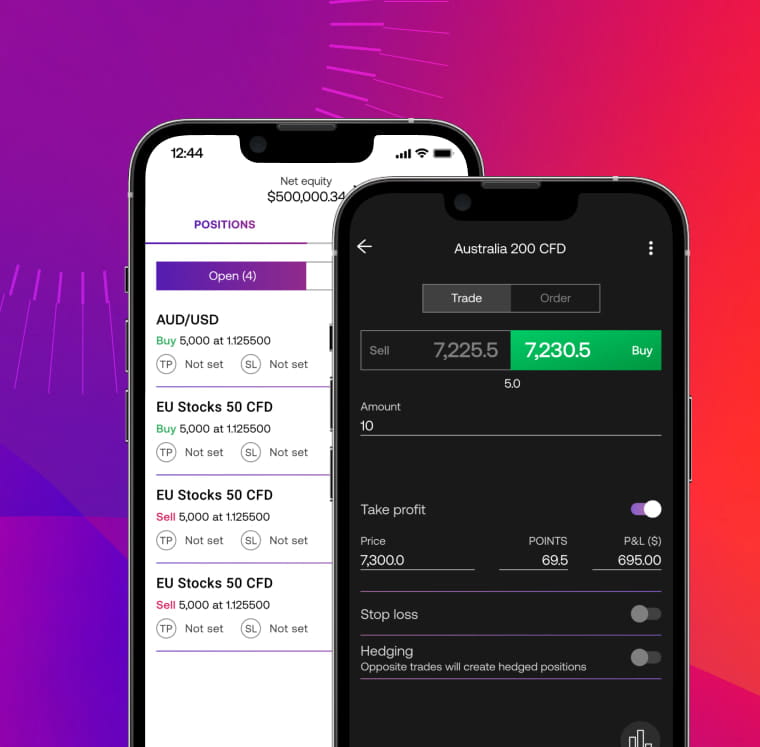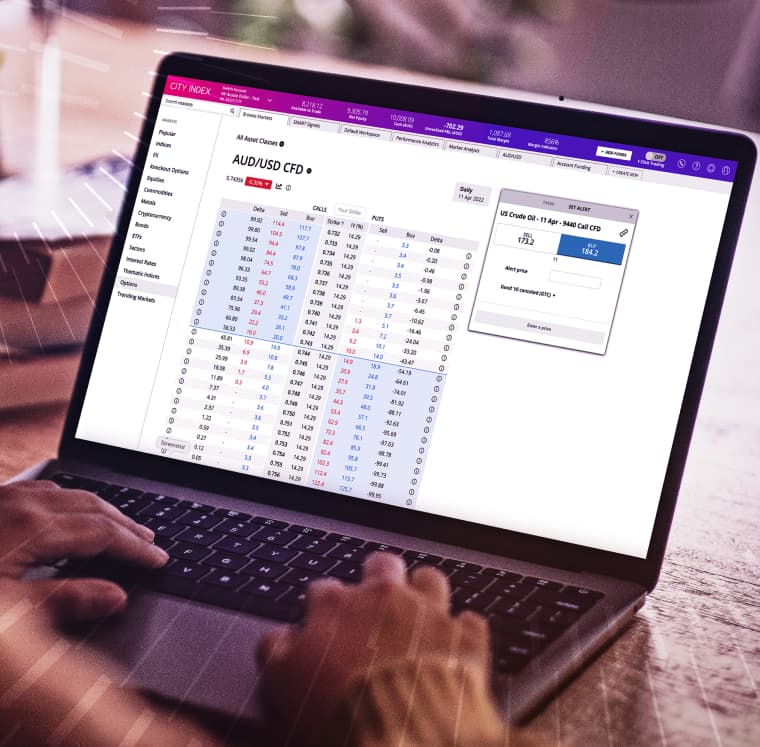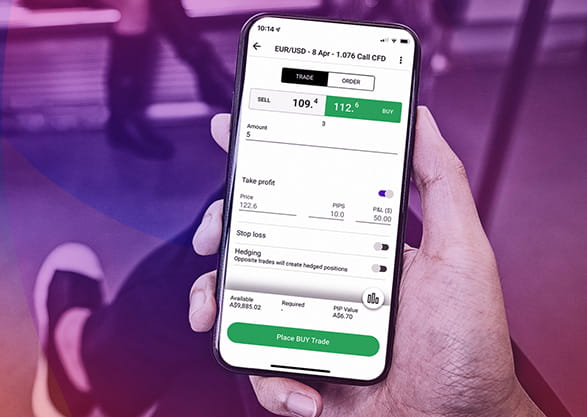
Options trading
Options are a dynamic product which can help you take advantage of any market condition. With the ability to generate income, reduce risk, or take advantage of your market views, options can help you achieve and leverage those goals.
Open a CFD trading account to trade a range of daily options contracts.
-
Competitive pricing
Tight spreads, live streaming on over 20 underlying markets including FX, indices, and commodities
-
Portfolio management
Use options in your portfolio to manage your risk and benefit from offsetting margin
-
Trade any market
Profit from any market environment whether trending, range bound or inactive
Why trade options with City Index?
-
Rely on our 40 years of experience in risk management to deliver you advanced options pricing. Licensed and regulated in Singapore since 2006
-
Access hundreds of options strikes across multiple asset classes on our new intuitive options ladder
-
Create tailored strategies by integrating multiple trades into your market view and maximise potential returns
-
Benefit from our customisable economic calendar to manage your future exposure
Our performance in numbers
*StoneX retail trading live and demo account holders globally since Q4 2020.
Mobile trading app
Seize trading opportunities with our most easy to use mobile apps to date, with simple one-swipe dealing, advanced charting, and seamless execution. Available on Android and iOS.
TradingView charting
Complete with one-click dealing, custom indicators, alerts and drawing tools.
Trading Central
Harness the power of technical analysis and access insightful market data on our most popular markets.
Performance Analytics
Gain deeper insight into your trading and discover how you could improve your performance.

How to trade options
Options markets offer traders a wide range of opportunities across markets including indices, commodities, forex and metals.
At City Index you can strengthen your investment portfolio by trading a range of daily options contracts with a CFD trading account. You get full access to our intuitive options ladder via our browser-based trading platform and mobile apps for iOS and Android.
Options trading has recently become more popular for retail traders because of the ease of access, competitive pricing on offer, and reduced risks. 2021 was a breakout year for options according to CBOE Global Markets, with a 31% increase in daily option trading volume.

What are options?
Want to trade options but don’t know where to start? Discover what options are and how to open your first position with our complete guide to options trading.
Options pricing
Options traders often refer to delta, vega, theta, gamma and rho to help assess the price of their contracts. But what do these terms mean? Discover what the Greeks are and how they impact the price of an option.
Options terminology
The options market is full of complex terms and jargon that can act as a barrier to trading for beginners. Discover the meaning of the most commonly used options terminology to help you get started.
Hundreds of thousands of traders use City Index as their provider of choice. Here’s why.
With 24/5 dedicated client support, we are always on hand to help – and 99.99% of all valid trades are executed by our market-leading trading technology.
We’re backed by Nasdaq-listed StoneX, a Fortune 100 company with over a century in the financial markets. Combined with our four decades of heritage, you’re in good hands.
Enhance your trading experience with our exclusive Performance Analytics technology and comprehensive risk management tools. From Knockout Options to Guaranteed Stop Loss Orders, our tools are designed to help you manage risk effectively and make informed decisions.
Frequently asked questions
What is the strike price of an option?
The strike price of an option is the level at which you can execute it, which will dictate whether you earn a profit or loss from your position. It tells you how much you can buy or sell the underlying market for according to the terms of the option.
Buying a gold call option with a strike of $13,000, for instance, enables you to buy gold at $13,000. If gold rises above $13,000, you can execute your option and buy it for a discount. If it doesn’t, then the option is worthless.
A gold put option with the same strike, on the other hand, gives the holder the right to sell gold at $13,000. If gold is priced below $13,000, you can sell it for more than the current market price.
Explore all the options terminology you need to know.
How do I trade options?
Options are bought and sold on exchanges – just like futures – so to trade them in the open market you’ll need an account with an options broker. Alternatively, you can use your City Index account to speculate on the price movements of options alongside thousands of other markets.
With City Index, you trade options just like other markets – using CFDs. You can get exposure to the price movements of a huge range of options, covering 20+ markets and a full chain of strikes and expiries.
You’ll be able to go long on options to profit if their premium rises, or short to profit if it falls. If the option moves against you, you’ll make a loss.
Start options trading today with a City Index account
How do options work?
Options work by enabling you to buy or sell a market at a predefined price, known as the option’s strike price. Buying a Dow Jones (Wall Street) call option with a strike of 34,000, for example, means you can buy the Dow at 34,000 – whatever price the index is currently at.
To get the right to buy the Dow at 34,000, you’ll pay a premium. And each option comes with an expiry date, after which it can’t be executed and becomes worthless. If you don’t want to use your option – say, because the index stays well below 34,000, so executing would earn you a loss – you can leave it to expire, and all you lose is your premium.
There are two types of options: calls and puts. Buying a call gives you the right to buy a market at the strike price and buying a put gives you the right to sell it. As well as buying options, you can sell them. This means you’re giving someone else the right to:
- Buy a market from you at the strike price (if you’re selling a call)
- Sell a market to you at the strike price (if you’re selling a put)
In return, you’ll pocket the premium.






